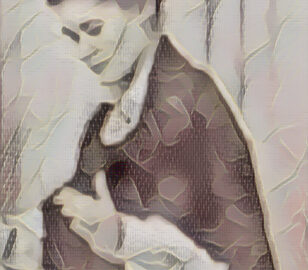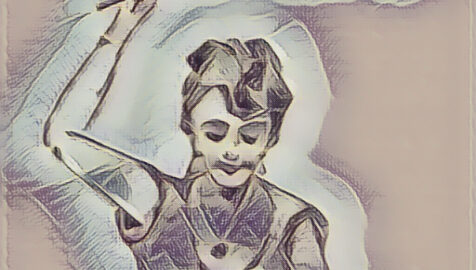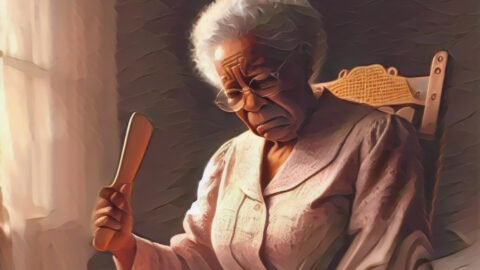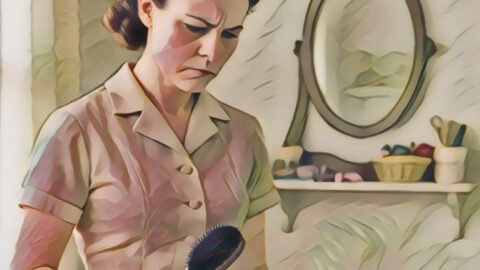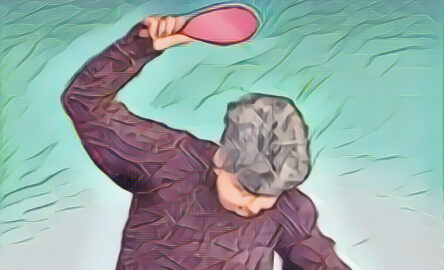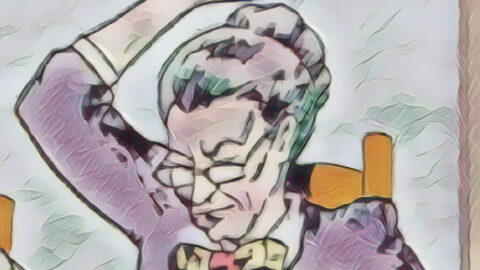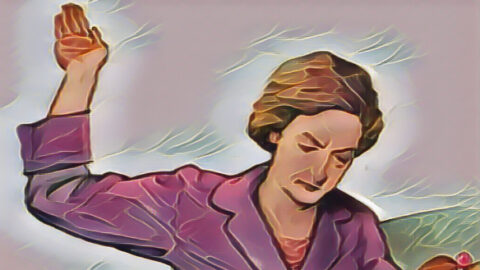(gap: 2s) Once upon a time, in a quiet English village, my brother and I lived in a small house with our dear mother. Our days were filled with laughter, games in the fields, and the gentle routines of family life. Yet, there was one summer, the summer of 1971, that stands out in my memory, for it was then that we learned a most important lesson about obedience and the consequences of disobedience.
Each spring, Mother would take us to the shops to buy new clothes for the warmer days ahead. We would receive new short trousers, a fresh T-shirt, and, of course, a pair of sturdy sandals. These sandals, which Mother called “Jesus sandals,” were brown, made of stiff leather, and fastened with a shiny buckle. My brother and I did not care for them at all. We thought them old-fashioned and rather uncomfortable, but Mother insisted that they were sensible and proper for children.
(short pause) The sandals were not at all to our liking. They looked as if they belonged in a church jumble sale or on the feet of a vicar out for a Sunday walk. The leather was stiff, the straps thick, and the buckles always seemed to catch on our socks. The soles were flat and made running quite impossible, and they squeaked with every step. All the other boys wore trainers or smart black shoes, and we felt most out of place in our sandals. Whenever we wore them, we felt the eyes of our friends upon us, and we longed to hide our feet away.
One bright spring day, Mother took us to the shop, and, despite our protests, we each received a new pair of brown leather sandals. We tried to hide our disappointment, but Mother was firm. “These are good, strong shoes,” she said. “You will wear them, and you will be grateful.”
The very next morning, Mother asked us to wear our new sandals to school. My brother and I were terribly afraid that the other children would laugh at us, so, while Mother was busy in the kitchen, we quietly put on our old sneakers and hurried off to school.
When we returned home, Mother was most displeased. She scolded us for our disobedience, but the following day, we did the very same thing. Once again, we crept out in our sneakers, leaving our new sandals behind. Mother soon discovered what we had done, and her disappointment was clear.
That afternoon, when we came home from school, Mother was not there to greet us. Instead, we found a large wooden cooking spoon placed upon our desk. We knew at once what it meant, and our hearts filled with dread.
(short pause) The wooden spoon was no ordinary kitchen tool. It was long and sturdy, made of pale beechwood, and polished from years of use. It was a symbol of Mother’s authority, and we knew that it was to be used for our correction. The sight of it lying on the desk made our knees tremble, for we understood that we had truly misbehaved.
“We must put on our sandals before Mother returns,” I whispered to my brother, my voice shaking. “Yes, let us do so,” he replied. We quickly changed into our sandals and ran outside, our hearts beating fast with worry.
After half an hour, we returned home. Mother was waiting for us in the garden. “Come here at once!” she called, her voice calm but very firm. We obeyed, our heads bowed. She took us each by the hand and led us into the house. Her grip was strong, and we could feel her disappointment.
“But Mother,” my brother pleaded, “we are wearing our sandals now!” His voice was small and frightened.
Mother did not reply. She led us up the stairs to our room. The air was heavy with silence, and the sunlight seemed cold and distant. My brother’s hand was clammy in mine, and I could hear his quick, nervous breaths. Mother sat on the edge of the bed and took my brother gently but firmly by the arm. She guided him over her knee, and the room grew very quiet, save for the ticking of the clock and the distant hum of a lawnmower outside.
First, Mother delivered three sharp smacks with her hand to my brother’s bottom. Each smack rang out clearly in the still room, and my brother’s legs kicked in surprise. Then, in a voice that allowed no argument, she said, “Pass me the spoon.” My hands shook as I handed it to her, the wood cool and heavy in my palm. Mother then gave my brother six firm smacks with the wooden spoon, each one measured and deliberate. With every smack, my brother cried out, and tears rolled down his cheeks. The lesson was clear: disobedience would not be tolerated, and discipline, though painful, was given with love and care.
When Mother had finished, my brother was allowed to stand. His face was red and wet with tears, and he was sent to stand in the corner, his shoulders shaking with quiet sobs. Then it was my turn. My heart pounded, and my legs felt weak. Mother guided me gently over her knee. She gave me three sharp smacks with her hand, and then, after a pause, she gave me six smacks with the wooden spoon. Each smack stung, and I could not help but cry. The pain was real, but so was the lesson. I knew that I had disobeyed, and that Mother’s discipline was meant to help me grow into a better person.
When it was over, I joined my brother in the corner. We stood there together, our faces hidden, the sting of the spoon lingering long after the punishment had ended. The embarrassment was almost as great as the pain, but we understood that we had brought this upon ourselves. Mother’s actions were not cruel, but loving and just. She wished only to teach us right from wrong.
That summer, my brother and I wore our sandals every day. We did not wish to feel the sting of the wooden spoon again. The memory of that day remained with us, not only as a reminder of the pain, but as a lesson in obedience and the importance of listening to those who care for us. Even now, when I see a wooden spoon or feel the sun on my feet in old sandals, I remember not just the punishment, but the love and care that guided us, and I am grateful for the lesson learned.




















































